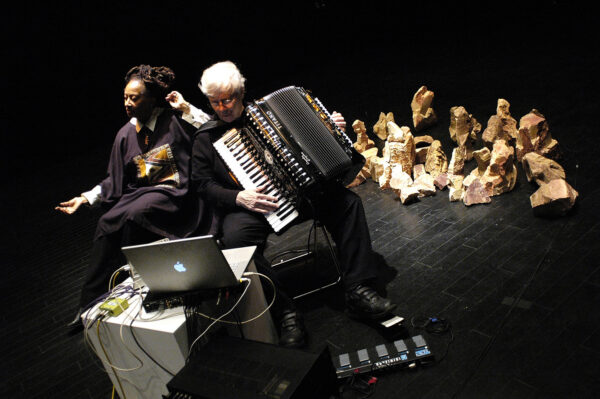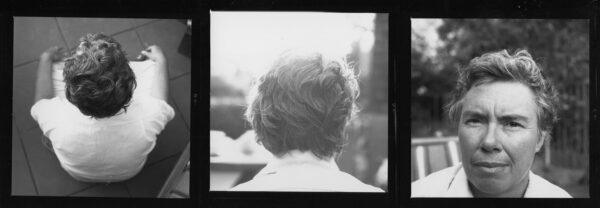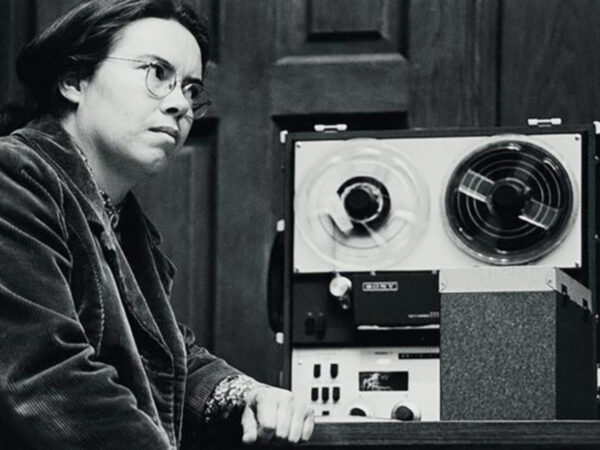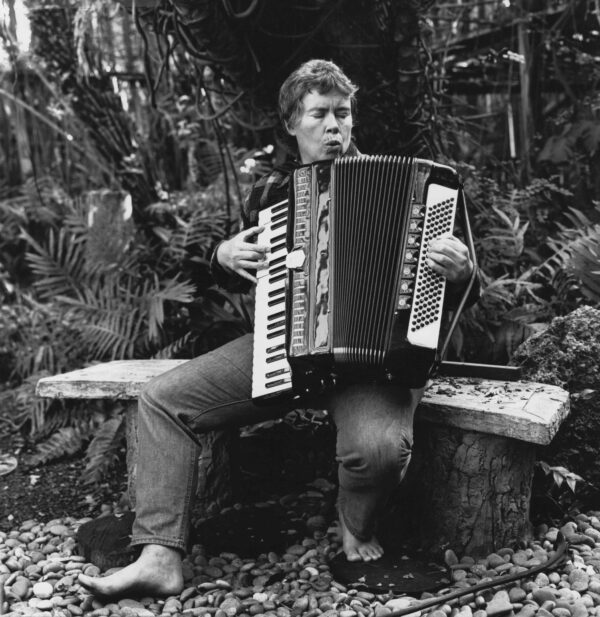Is it possible that we might now be ready to begin to appreciate and integrate the lifework of uncategorizable Houston-born composer, musician, technological innovator, teacher, and humanitarian Pauline Oliveros? Her work as a central figure in the development of experimental and electronic music beginning in the 1950s and ‘60s (and her life as a Lesbian woman in that straight male dominated field) qualifies her as a true pioneer. But that was only the very beginning of her dedicated openness and evolving philosophical practice of sensing, healing, and creating. The new documentary Deep Listening: The Story of Pauline Oliveros does a great job of tracing the evolution of this visionary. For those who know something about her, the film is a fitting celebration of an important yet often overlooked figure. For the uninitiated, which is most of us, it’s a real revelation.
This week, Houston will celebrate the late Pauline Oliveros with a special screening, discussion, and performance. The film Deep Listening will be shown at the Museum of Fine Arts, Houston’s Brown Auditorium on Sunday (January 28, 5 p.m.), followed by a conversation between Nameless Sound’s David Dove, the film’s director Daniel Weintraub, and — via live video stream — Oliveros’ personal and creative partner, Ione. The next evening (Monday, January 29, 7:30 p.m.), there will be a free, live performance of scores by Pauline Oliveros presented at Lawndale Art Center. Both of these events are co-presentations of Nameless Sound, the great music and community organization that began more than twenty years ago as a branch of her Deep Listening Institute.
Oliveros’ “sonic awareness” began in Houston, as an inquisitive, young child. In the film, she recalls listening to birds and insects outside her window, noticing her family’s voices mixing with the sound of the car engine, and marveling at the static between radio stations — all indications of a larger world of simultaneous sound possibilities channeled by one’s tuned attention. She began playing the accordion at age nine, and by her teens she was playing the piano, violin, tuba, and French horn. She attended the University of Houston’s Moores School of Music, where her first original compositions were performed, before going on to study composition at San Francisco State College under Robert Erickson and others.
While in San Francisco, she began exploring the resonances of objects, the creative possibilities of tape recorders and electronic equipment, and conceptual and theatrical approaches to new music composition and performance. Through the newly formed San Francisco Tape Music Center and Pacifica public radio station KPFA, Oliveros met and collaborated with such composers as Terry Riley, Loren Rush, and Morton Subotnick; she also shared energies and influences with choreographer/dancer Anna Halprin, interdisciplinary artist Anthony Martin, and others. Her innovative compositions won her international acclaim as an artist, while her organizing of performances and teaching gained her respect as collaborator and catalyst.
Amidst the societal chaos of the late-1960s, Oliveros began to feel the temper of the times and confront the culture of fear and despair around her. She quit her teaching position and spent years immersed in introspective experimentation, performing only privately or in small groups. Her intertwined interests in music, movement, and meditation led her toward developing a practice that incorporated both kinetic and sonic awareness. Both deeply serious and seriously playful, Oliveros considered her “Sonic Meditations” to be transformational tunings of mind and body, and she foregrounded the art of listening as key not only to musicality, but to connectedness, intentional action, and healing. This philosophy would guide a diversity of creative works, collaborations, and communal gatherings for the rest of her life.
The positive influence of Pauline Oliveros is strong in the music community of her hometown. She was an important mentor for Houston trombonist and composer David Dove, influencing his own artistic practice as well as the long commitment of his organization, Nameless Sound, to promote personal and community growth through creative music. Houston vocalist Lisa E. Harris, who appears briefly in the film, also considers Oliveros a big inspiration. “She’s had an integral influence on my practice as a listener, composer, and community leader,” Harris told me, citing intentionality and the connections of body, environment, and shared human experience as important guidance instilled by “our beloved teacher and elder, Pauline.”
Oliveros’ unique creative efforts span over 50 years and vary widely, but the documentary film travels through a range of her works. Additionally, a special concert that includes a live performance of her piece “Bayou Air,” in which the Nameless Sound Ensemble will be joined remotely by her partner, lone, will put anyone witnessing it in the middle of an experience beyond words. As we begin this new year, there is perhaps no better time to acknowledge this fascinating history and to reflect on Oliveros’ inspiring legacy. And while we’re at it, perhaps we can resolve to approach the world, as she would suggest, “with ears wide open.”
Deep Listening: The Story of Pauline Oliveros
Houston premiere screening and discussion
Sunday, January 28, 5 p.m.
The Museum of Fine Arts, Houston, Brown Auditorium
They, Who Sound: Scores by Pauline Oliveros
Live performance
Monday, January 29, 7:30 p.m.
Lawndale Art Center






